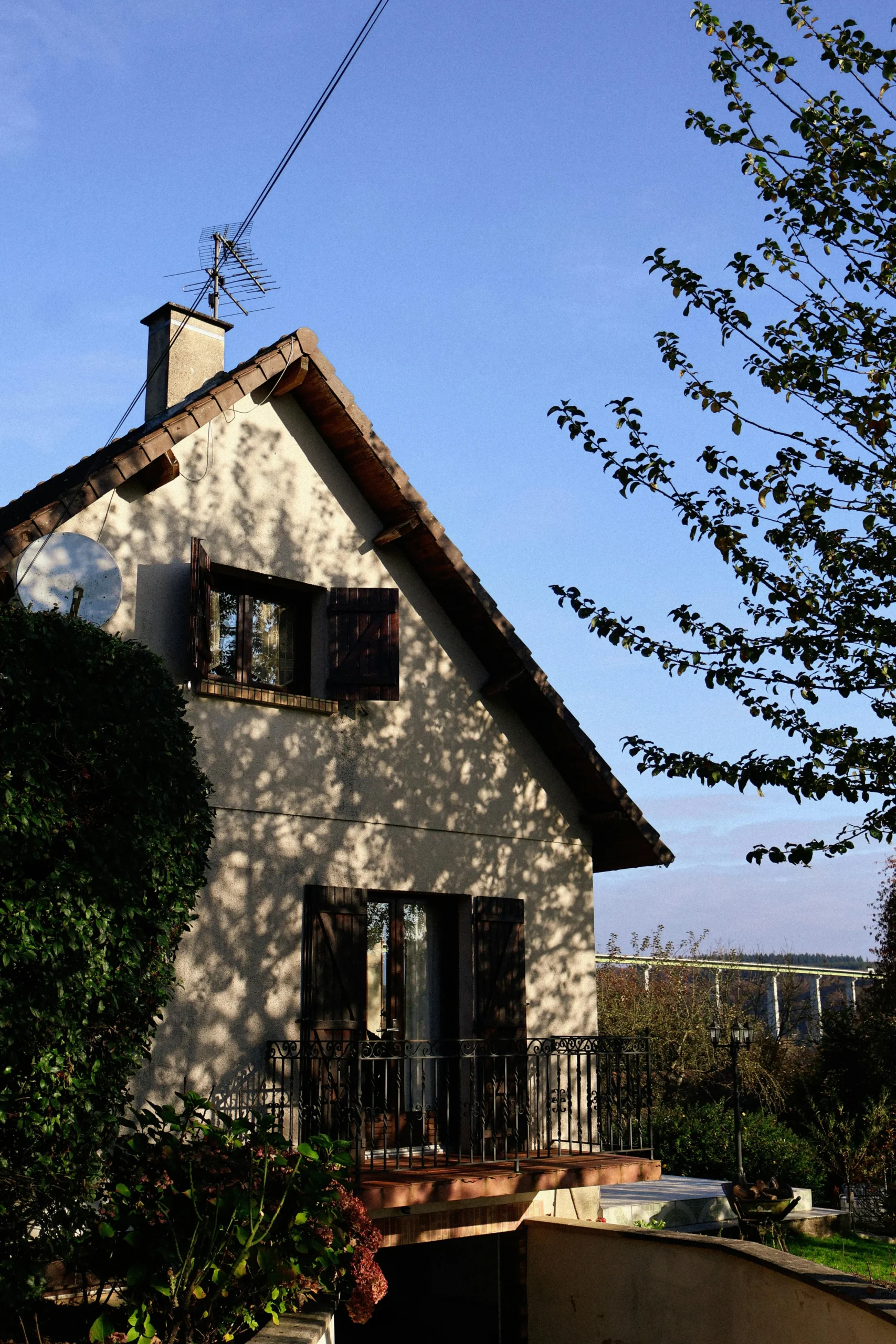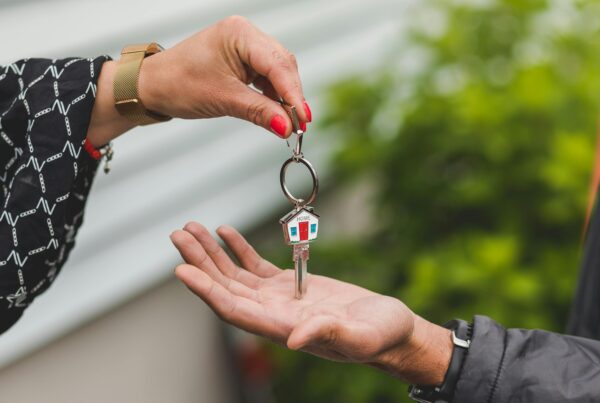Choosing to sell your home is a major decision that must be carefully timed so that you don’t lose money on your home purchase.
Capital gains tax rates, the home’s market value, the current housing market, and whether you have built enough equity to offset financial losses will all determine whether you will lose money or make a good profit.
In this article, we will discuss the many factors that can help you decide how long to live in a house before selling, ensuring you avoid costly mistakes.
Financial Considerations
Because real property is a taxable asset, you will pay capital gains taxes on the home sale. With capital gains tax, the length of residency, your tax filing status, and your income determine the rate you must pay.
An asset purchased less than a year ago is considered a short-term asset. Short-term capital gains taxes are treated as ordinary income and taxed at your usual rate.
The short-term influx of cash can push you into a different tax bracket. That means if you’re a single filer making $100,000 a year and selling a $100,000 home, anything counted as income beyond $191,951 would be taxed at 32%.
In contrast, long-term capital gains taxes are on a different schedule and are usually lower than your usual rate. This rate can range from 0% to 20%, depending on your typical income.
If you have lived in the home as your primary residence for at least two of the past five years, you can avoid capital gains tax on a portion of the sale.
With this home sale tax exemption, those filing single can exclude up to $250,000 of the home’s sale price from taxation, and married couples filing can exclude up to $500,000.
Anything beyond that will be taxed at a rate of 0%, 15%, or 20%, depending on your income. In many cases, you can avoid taxation on the entire sale or only have to pay taxes on a very small portion, which is very advantageous.
Because of this, you should always strive to spend at least two years in a house before selling so that it is considered a long-term investment.
Closing Costs
Additional costs beyond taxation include closing costs, transfer taxes, and real estate agent fees. Depending on where you live and what services you use, such as a real estate attorney, these expenses could be as little as 6% or as high as 12%.
Additionally, you will still have to pay property taxes and homeowners insurance for the time you lived in the home that fiscal year. There will also be a small fee for transferring the insurance to the home buyer.
Home Equity
How much equity you have is crucial for how long you should live in your home. You build equity each time you make mortgage payments, but as real estate prices rise, you also passively build equity.
If you still have a mortgage, you want as much equity as possible because part of the sale proceeds will be used to pay off the principal loan amount.
Remember that mortgage interest payments don’t count toward that initial amount, so you must check your mortgage statement to see how much you put toward the principal each month.
The more equity you have, the more you keep from the sale. Selling too early can be costly, as your principal loan amount might be a significant portion of the sales price, all of which will return to the lender.
Breakeven Point
In the real estate industry, the breakeven point refers to the time it takes to recoup the losses of transaction costs, whether purchasing a house, refinancing a mortgage loan, or selling a home.
Generally, it will take five to seven years to break even on a sale, though this may be shorter or longer, depending on the current market trends in your area.
You can estimate this by dividing all the money you have put into the house, such as mortgage payments, closing costs, financing fees, down payment, and repairs, by how much you will gain through the sale. This will allow you to estimate, in years, how long it takes to break even.
Market Trends
The local residential real estate market plays a crucial role in whether you will make or lose money on a sale, as it influences home values and, thus, your potential listing price. Additionally, you may have more bargaining power at certain times, meaning you can get more concessions from home buyers.
Local Market Conditions
Home prices are a crucial element of how much you can make on a sale, but so is supply and demand.
In a buyer’s market, the buyers have more bargaining power because there is higher supply than demand. They can ask you to cover more closing costs or ask for a price drop, knowing there is little competition for your property.
On the other side, a seller’s market means that you can demand higher than the initial listing price, avoid paying for any repairs that came up during the inspection, or even ask the buyer to cover more of the closing costs, such as the commission for their real estate agent. How much you can ask for depends on how uneven the market is.
The National Association of Realtors provides research on local market conditions that can help you determine whether it’s a good time to sell based on whether the market is in your favor.
Future Economic Outlook
The broader market also determines how long you should live in a house before selling. When the typical interest rate is high, you will have less advantageous loan options and may be trading a reasonable rate for a bad one. This may mean you lose money because you’ll have higher interest payments for your next home.
Population growth and the employment market can also influence your decision to sell your home.
A strong job market and high population growth in the area will push up demand and create a seller’s market. In contrast, high unemployment and low or negative population growth create a buyer’s market that reduces your bargaining power.
Personal Circumstances
Sometimes, the length of time you should live in a house before selling is influenced by how comfortable you are with the property and whether it still meets your needs.
If you have a great new job opportunity elsewhere that would significantly boost your income, this can offset any losses you may have incurred from an early sale.
Additionally, if you intend to grow your family soon, purchasing a home with more space may make the losses worth it on a personal level.
On the other hand, if you need to downsize because you cannot keep up with the upkeep of the home, it may be better to sell the house when it’s still in good shape rather than risk the home developing significant problems because of disrepair.
The “Five-Year Rule”
In general, the average homeowner needs to live in a home for at least five years before it makes sense to sell it. This is a good rule of thumb for deciding whether the initial costs of purchasing the home will be offset by the windfall of the sale.
During that time, you will have built up more equity from paying off the loan and market appreciation, which reduces the losses from paying off the principal from the proceeds.
Summary
How long you should live in your home before selling is influenced by many factors, including whether you are eligible for the reduced long-term capital gains tax, how much the sale costs, and whether it’s a seller’s market.
At F5 Mortgage, we help homeowners make smart decisions about when to buy, refinance, or sell their primary residence, ensuring that they make the best choice for them. We are a mortgage brokerage company that matches buyers to the perfect rate and product while offering helpful advice on avoiding the pitfalls of home selling and buying.
Get a free quote today, or contact usfor personalized advice on your home purchase journey.
You can also call us at 1-888-459-0483to speak to a loan officer and learn more about our services. We look forward to helping you with the next step of homeownership!
FAQs
How Long Do Most Houses Take To Sell?
It can take anywhere from 50 to 100 days to sell a home, depending on your location and the complexity of the sale. Fast markets will have homes move to pending much sooner, but the negotiations and legal aspects will still take some time.
What Is the Best Month to Sell Your House?
The spring and summer months are the most popular times for home-buying. Longer days and warm weather let homes shine with good landscaping, and prospective homeowners can move without disrupting their child’s school year.
What Time of Year Do Most Houses Go on Sale?
It’s possible to buy another house before selling your old one, but it’s not ideal. Most people use the proceeds from their sale to put toward a down payment and other home-buying expenses so as not to have to draw from their savings.
Additionally, if you purchase a home before selling the old one, you must pay two mortgages until you can complete the first transaction. This can quickly eat into any profits you may have made from the sale.
Can I Buy Another House Before I Sell My Old One?
Most houses are sold in April and May because buyers prefer to buy in spring and summer. This also allows them to stay on the market throughout the prime home-buying months and garner higher sales prices than they might during winter and fall.
Is It a Bad Idea to Sell Your House Before One Year?
Selling your home after less than a year is generally not a good idea because you will be subject to the short-term capital gains tax. A home is a taxable asset, but the length of ownership will determine the rate at which the Internal Revenue Service taxes the profits.
Short-term assets are taxed as ordinary income, which means they are subject to your ordinary income tax bracket. The sale may temporarily push you into a higher tax bracket, so you are paying more, even on your typical job income. In contrast, longer-term assets are taxed at a maximum of 25%, which could be significantly lower than your ordinary tax bracket.








